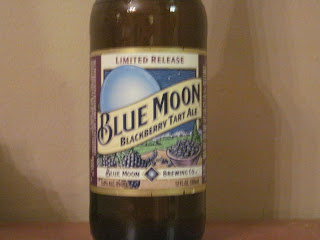The following is a brief summary of thoughts said over by R' Frand on the parsha this evening. I have attempted to reproduce these vorts to the best of my ability. Any perceived inconsistency is the result of my efforts to transcribe the shiur and should not be attributed to R' Frand.
Parshas Shelach contains the well known story of the meraglim - the twelve spies who were sent on a reconnaissance mission to Israel. R' Frand noted that within the story, the Torah states in Bamidbar 13:22 "Va'yalu BaNegev Vayavo Ad Chevron" - they went up in the south and he arrived at Hevron.
R' Frand noted the use of the mixed plural and singular terms and cited to Rashi's explanation (quoting the Gemara in Sotah 34b) that Calev left the other meraglim and went on his own to Chevron in order to seek a blessing. The Gemara explains that Calev asked the Avos to pray to Hashem that he not be influenced by the meraglim. The Gemara further explains that Yehoshua did not seek similar assistance as Moshe had already given him a beracha.
R' Frand next quoted R' Shlomo Wolbe who asked why did Calev go to Chevron to ask for help in resisting the meraglim? When a person does not know what to do, it is understandable that he would ask for assistance in making the right decision. But Calev knew that the meraglim's plot was wrong and that he should not join in their defaming of Israel. If he knew what the right way was to act, why did he need the beracha?
R' Frand answered that we learn from Calev that even when a person knows what the right decision should be, a person should seek to avoid being in a situation where he might come to act improperly. Because even when you know what the right decision is, when you put yourself in the way of temptation, you may wind up going the wrong way.
R' Frand gave an example of a person who is on a diet, but is invited to a wedding. The person knows that there will be tables full of temptation. The person may say to himself, I will avoid the foods which are bad for me ... but then find himself at the table anyway. The person needs to take steps to avoid temptation, like loading up on vegetables and healthy food before he comes to the wedding. That way, when the person finally gets to the shmorg, he will be too stuffed to eat. (I wish!).
R' Frand quoted R' Yisroel Salanter who gives another example from earlier in the Torah. In Bereishis 31:1-13, the Torah discusses how Ya'akov leaves Lavan. In 31:3, Hashem tells Ya'akov that he should leave Lavan. The following morning, Ya'akov does not immediately tell his wives that Hashem had told him that he should leave. Instead, Ya'akov talks to them about how Lavan is not acting nicely towards them and the Torah relates his conversation with the wives which spans nine pesukim. Only at 31:13 does he finally say - Hashem told me that now is the time to leave. Why does he wait so long to say that he heard from Hashem to do this?
R' Frand answered that Yaakov added all the fuel to the fire to psych them up so that they knew that they needed to leave. He put it all out so that it would be a slam dunk that they would have to agree with him to leave Lavan. Only at the end did he add that Hashem told him to do so.
We see from this how far a person must go to make sure that he has the assistance needed to make even the most logical "right" decision.
R' Frand closed the shiur by telling a story about a recent speech that Malcolm Hoenlein gave to an Evangelical group. The speech apparently took place this week, as Mr. Hoenlein began his address by saying that this week's Torah portion is Shelach, which discusses the spies. He then asked the audience - who are the only two spies who spoke positively about the land of Israel? As the people were familiar with the Bible he received a rousing - Caleb and Joshua as an answer.
Mr. Hoenlein then said to the group - and can you tell me the names of any of the ten spies who spoke negatively about the land of Israel? Not a single person answered.
Mr. Hoenlein said to them - you see from this that a person who speaks positively about Israel will be remembered forever. But a person who speaks negatively about Israel will be forgotten.
If you have seen this post being carried on another site, please feel free to click www.kosherbeers.blogspot.com to find other articles on the kosherbeers blogsite. Hey its free and you can push my counter numbers up!






